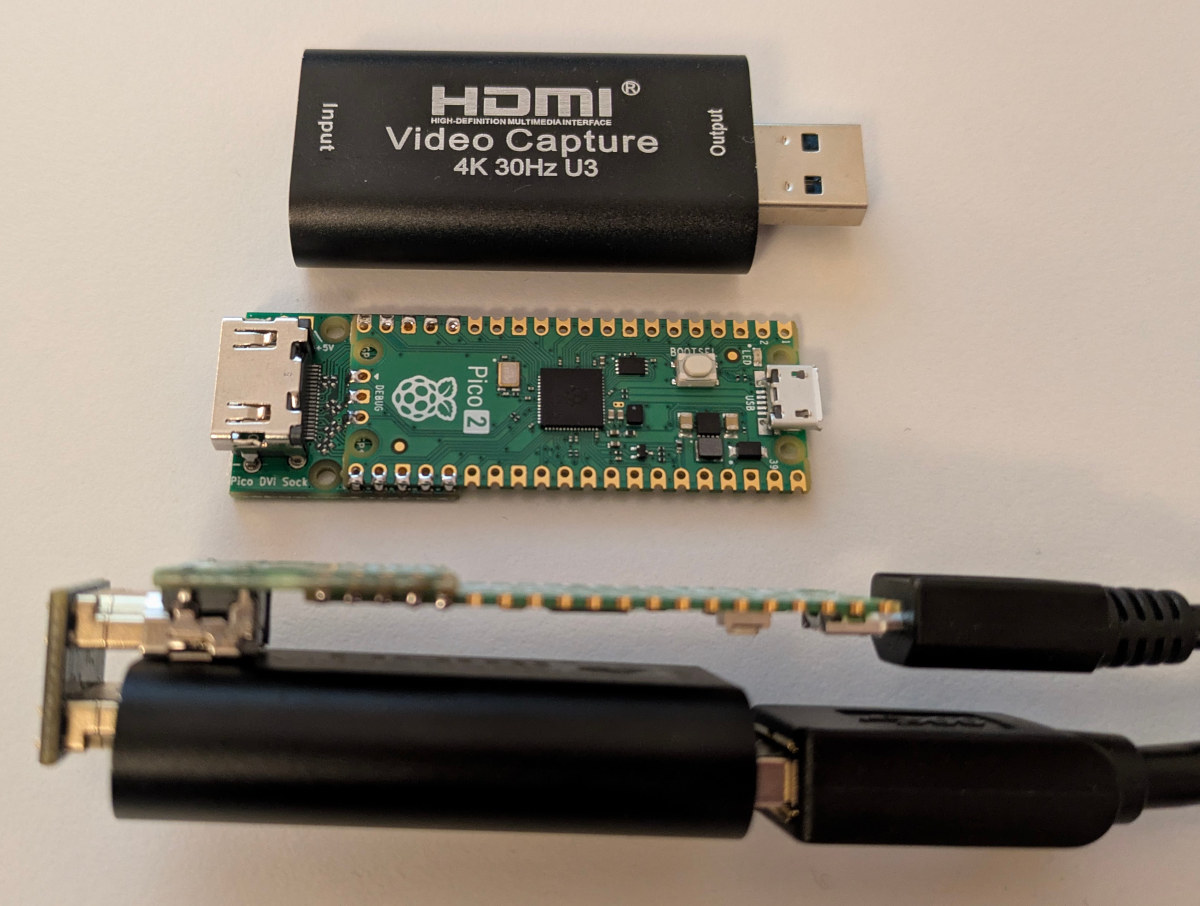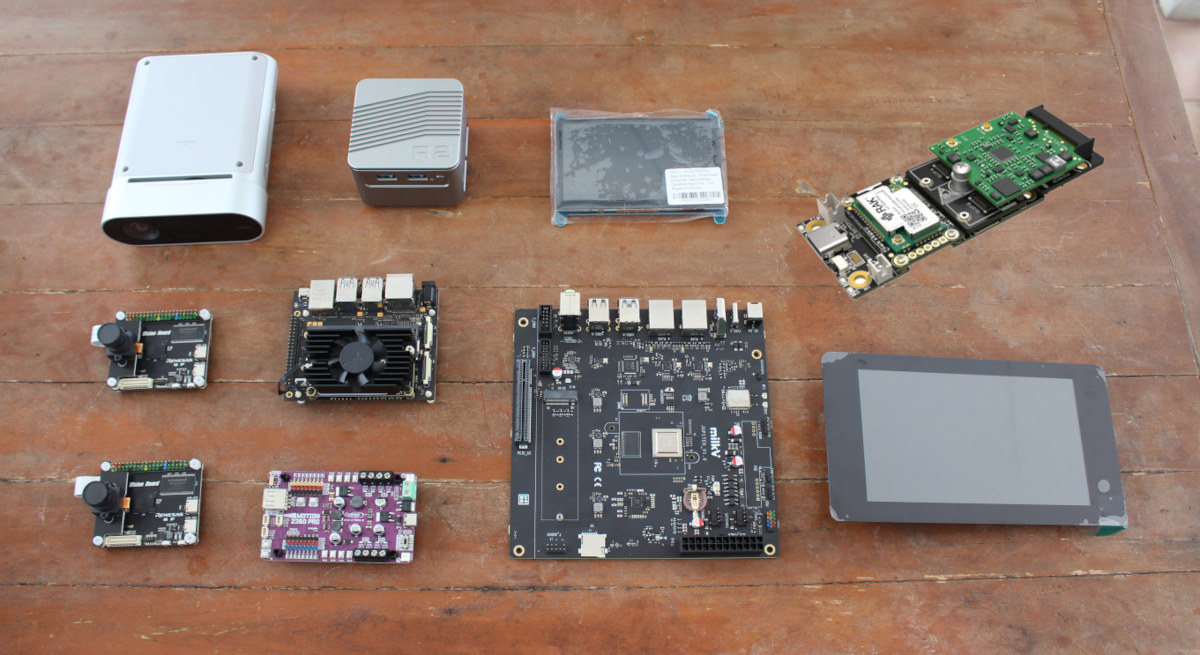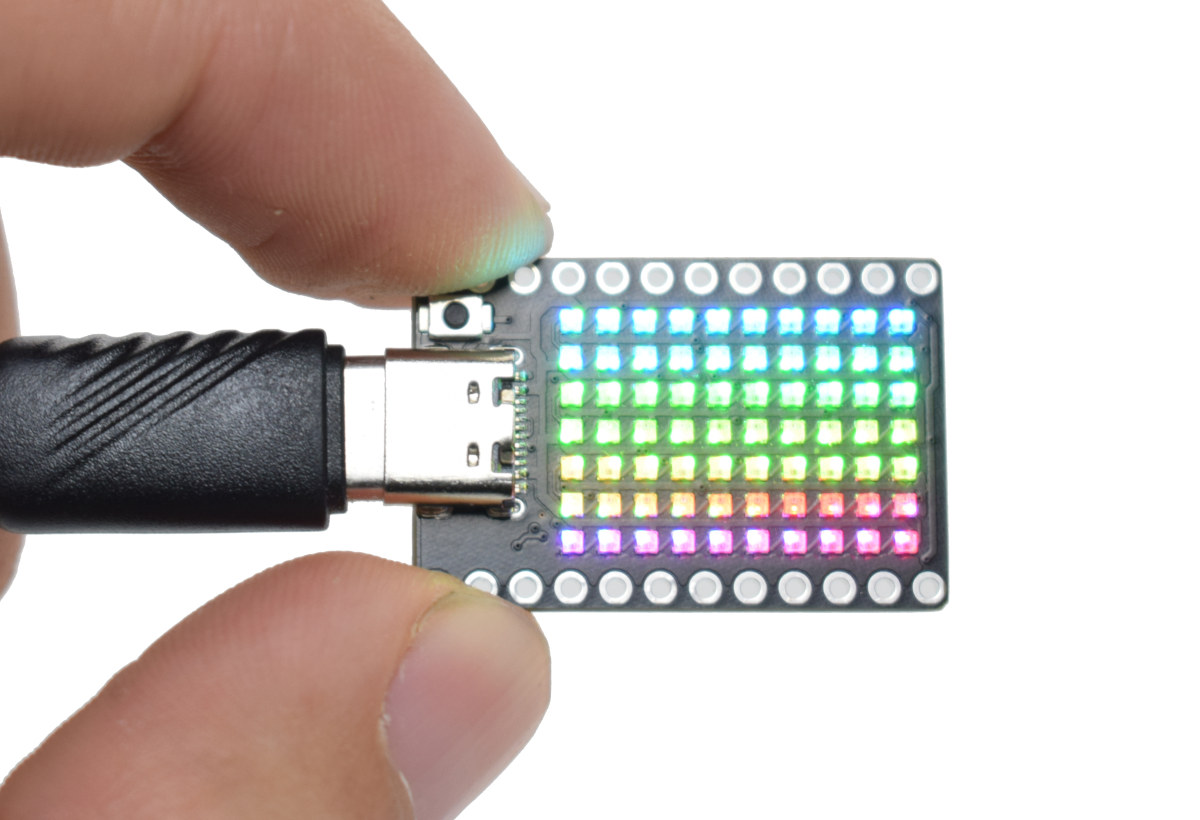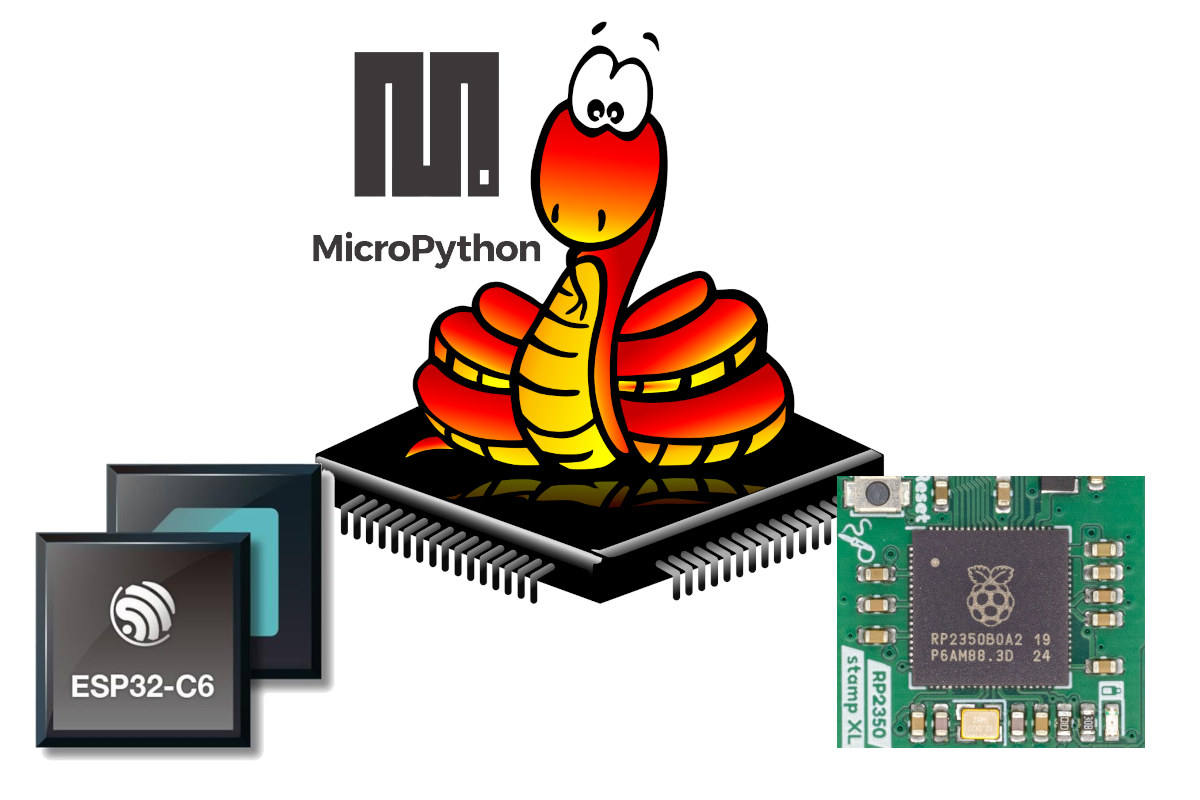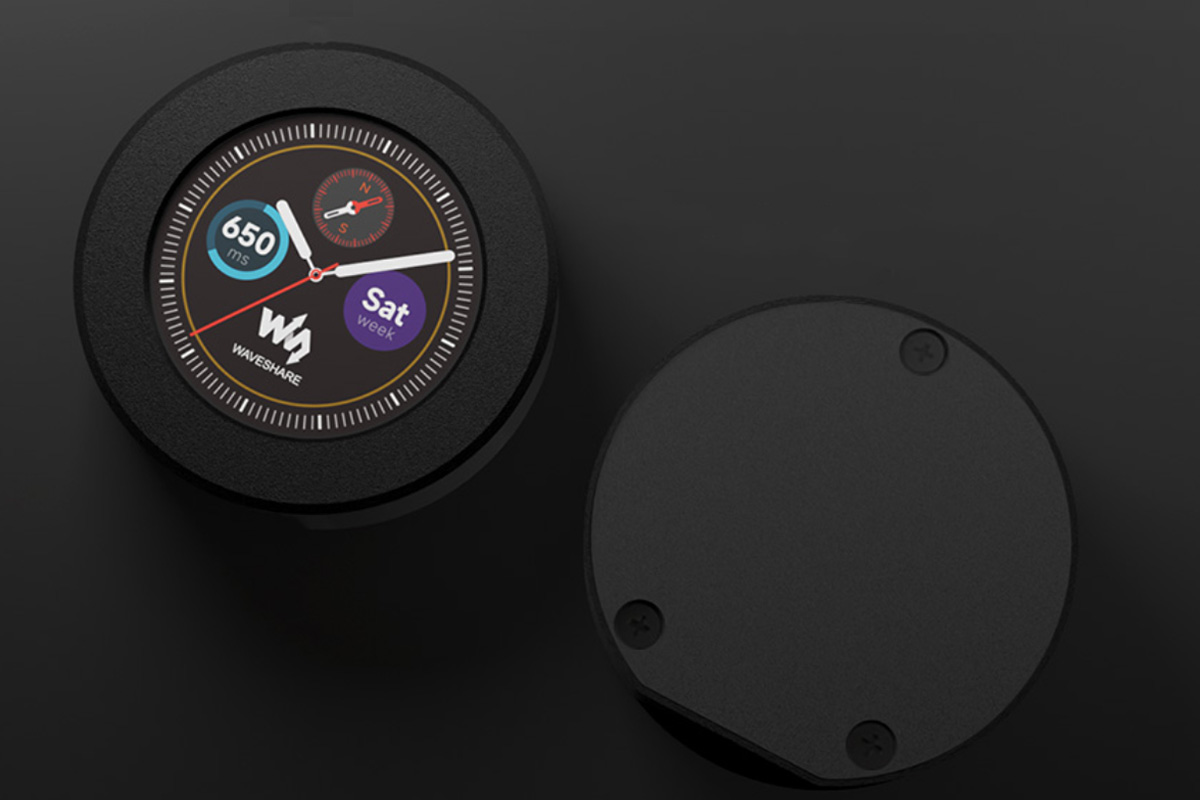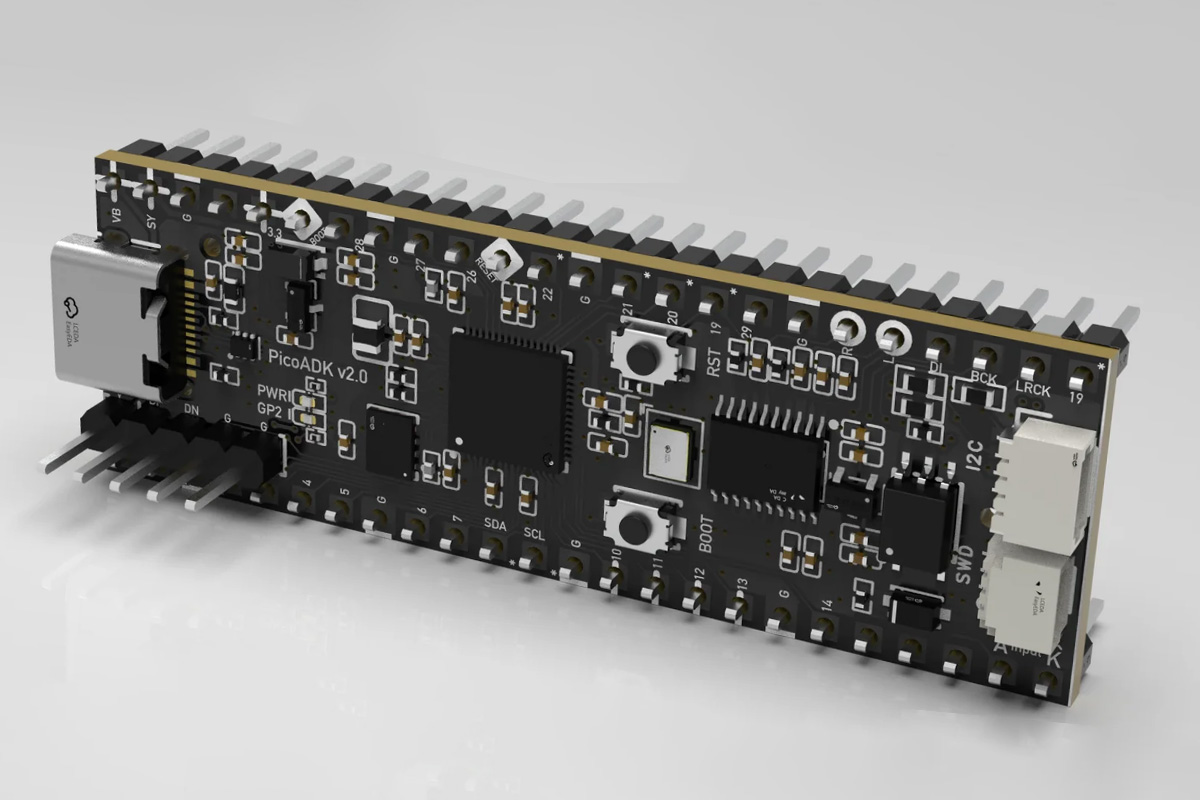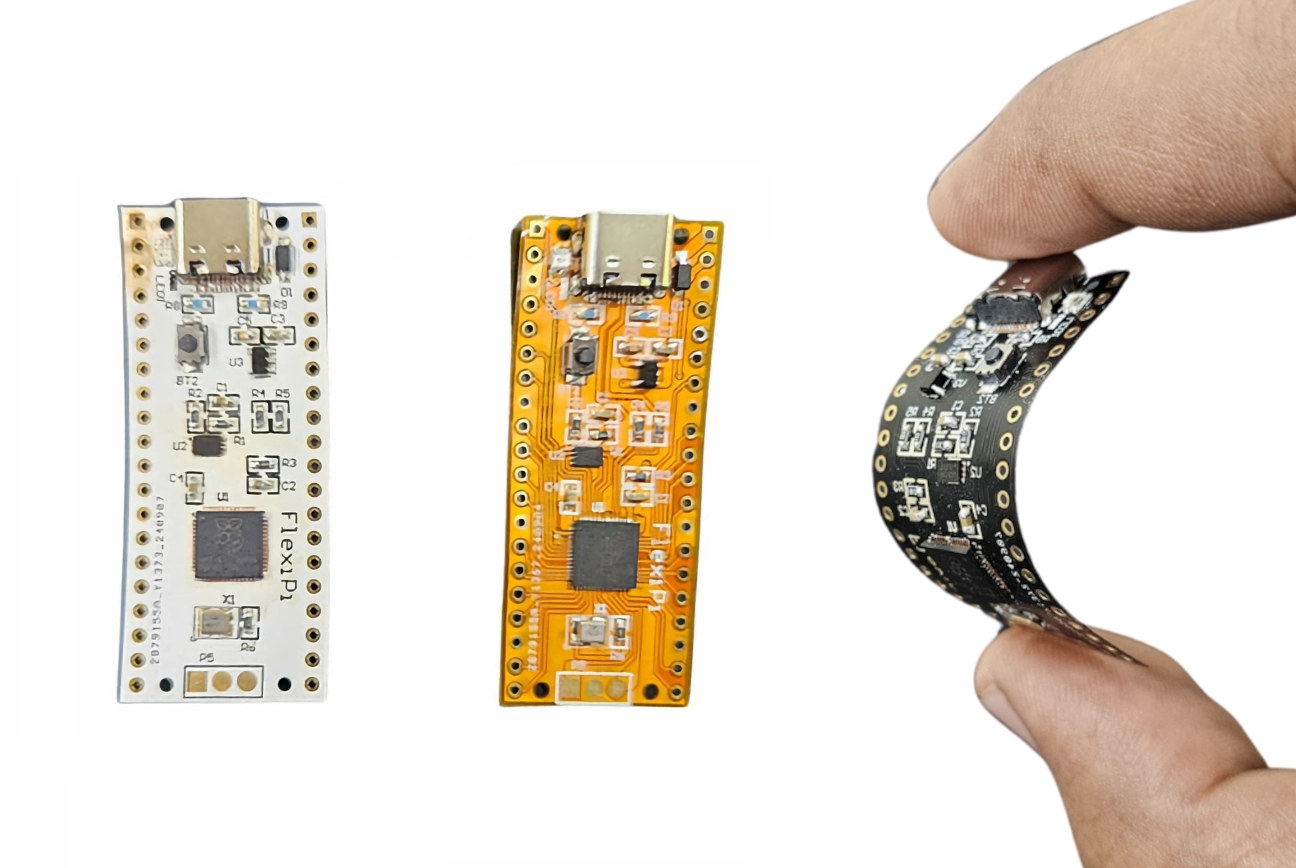While Black Friday and Cyber Monday used to be a US-only event, it changed many years ago, and we’ve been writing about international Black Friday and Cyber Monday deals and coupon codes since 2014, since a large portion of our audience cannot benefit from promotions on Amazon’s Black Friday and Cyber Monday events that will take place from November 21 until December 2 this year. So I’ve gathered some international Black Friday and Cyber Monday 2024 deals and discount coupon codes from relevant manufacturers and popular online stores such as Aliexpress, Banggood, and others. Aliexpress Black Friday and Cyber Monday event Aliexpress’ Black Friday and Cyber Monday 2024 event has already started. There are three periods: Nov 19-21 PST – Warm Up event where users can find and add items to the cart before purchasing during the main event. Nov 22-30 PST – “On Sale” event with discounts up to […]
High-speed data acquisition with Raspberry Pi Pico 2’s HSTX interface and HDMI to USB 3.0 video capture dongle
We previously explained the HSTX high-speed serial transmit interface of the Raspberry Pi RP2350 microcontroller was mostly useful for video outputs and display interfaces since it can only transmit, and not receive data. But Steve Markgraf found another use case for the HSTX interface – high-speed data acquisition – combining a Raspberry Pi Pico 2 board with the DVI Sock board for Pico and one of those cheap MS2130-based HDMI to USB 3.0 video capture dongles. He managed to stream out up to 75 MB/s of real-time data from an overclocked RP2350 to a host computer with a USB 3.0 port. The Adafruit Feather RP2350 HSTX board should also work, but also not been tested. Steve’s “hsdaoh-rp2350” data acquisition over HDMI firmware is based on the dvi_out_hstx_encoder example from Raspberry Pi using the HSTX interface for DVI output and code by Shuichi Takano implementing the HDMI data island encoding required […]
Giveaway Week 2024 winners announced!
We’re now ready to announce the winners of CNX Software’s Giveaway Week 2024. We offered some of the review samples we tested (and some we did not test) in the last year, and for the fourth year running, RAKwireless also gave away two IoT development kits shipped directly to winners. This year’s prizes also included a RISC-V motherboard, a 3D depth camera, a few Arm development boards, two touchscreen displays, and an Alder Lake-N mini PC/router. All those products can be seen in the photo, minus some accessories. You’ll find more than seven devices because we organized the third Giveaway Week on CNX Software Thailand simultaneously with four prizes. We had seven winners on CNX Software: Jupiter RISC-V mini-ITX motherboard – François-Denis, Canada Orbbec Femto mega 3D depth and 4K RGB camera – Reifu, Japan RAKwireless Blues.ONE LoRaWAN, LTE-M, and NB-IoT devkit – OldCrow, Portugal Mixtile Core 3588E development kit […]
Nova open-source hardware Raspberry Pi RP2040 board features a 70 RGB LED matrix (Crowdfunding)
Vcc Labs’ Nova is a tiny, open-source hardware Raspberry Pi RP2040 development board with a USB-C port, a 70 (7×10) addressable RGB LED matrix, and two 12-pin GPIO headers for expansion. It can be used for wearables, mini-displays, interactive art, fun games, and more. Nova specifications: MCU – Raspberry Pi RP2040 dual-core Cortex-M0+ microcontroller @ up to 133 MHz with 264KB SRAM Storage – 2MB QSPI flash “Display” – 7×10 WS2812 addressable RGB LEDs, each measuring just 1x1mm USB – USB Type-C port for power, data, and programming Expansion – 2x 12-pin header with 20x GPIO, 2x SPI, 2x I2C, 2x UART, 4x ADC, Vin, 5V, 3.3V, and GND Misc – Reset and BOOT buttons Power Supply 5V via USB-C port 7V to 18V via Vin pin Power consumption – 9 Watts with all LEDs at full brightness Dimensions – 30.48 x 20.32 mm (PCB only) Weight – 4.76 grams […]
MicroPython v1.24 release adds support for RP2350 and ESP32-C6 microcontrollers, various RISC-V improvements
MicroPython has become one of the most popular ways of programming microcontrollers, and the just-released MicroPython v1.24 adds support for the widely-used Raspberry Pi RP2350 and Espresif ESP32-C6 microcontrollers and a range of other changes. Those include improved RISC-V support with native code generation, an updated Zephyr v3.7.0 RTOS with threading support, unified TinyUSB bindings across ports, a portable UART IRQ API, and enhanced mpremote recursive copy. Damien George goes into more detail about the RISC-V improvements: … include an RV32IMC native code emitter, native NLR and GC register scanning implementations for 32- and 64-bit RISC-V, support for placing RV32IMC native code in .mpy files and also freezing it, and RISC-V semihosting support. Testing for RISC-V is done with the qemu and unix ports, and the support is utilised in the esp32 and rp2 ports. The Raspberry Pi RP2350 comes with both Arm Cortex-M33 and RISC-V cores, and the good […]
1.28-inch round color display features Raspberry Pi RP2350, motion sensor, GPIO headers, metal case
Waveshare has recently launched the RP2350-LCD-1.28, a Raspberry Pi RP2350-based 1.28-inch round color display module with 240×240 pixel resolution and a 65K-color IPS panel. This board also features a rechargeable Lithium battery manager, a 6-axis IMU with a 3-axis gyroscope and accelerometer, multiple GPIO pins, and a USB Type-C connector for programming and power. Additionally, it supports USB 1.1 host/device support, temperature sensor, and 24 PWM channels, all configured for flexible I/O options. These features make this device useful for IoT, wearable tech, and embedded applications. The company also provides an optional CNC metal casing that provides durability and heat dissipation for portable or rugged applications. We have previously covered similar development boards with a round display such as the RP2040-powered 0.99″ rounded display, the ESP32-S3 LCD Driver Board, the SB-Components has launched Dual Roundy, and others, but it’s the first to feature the RP2350 microcontroller. RP2350-LCD-1.28 specification: Microcontroller – Raspberry Pi […]
Datanoise PicoADK v2 music synthesizer is a Raspberry Pi RP2350 board for audio experimentation
After the success of PicoADK v1, Datanoise has recently announced the launch of its PicoADK v2 music synthesizer built around the Raspberry Pi RP2350 MCU. The board supports projects like custom synthesizers, audio effects, and noise generation, and the 8 MB QSPI PSRAM of the RP2350 makes it ideal for memory-intensive applications such as long delays. Additionally, it features a SWD debug port, microSD card support, a MIDI-in circuit with an optocoupler, USB Type-C, user and power LEDs, and more. Previously, we have written about various similar synthesizer boards, like the Arduino-based MIDI controller, and we have seen products like the TinyLlama x86 retro computer, which uses the Raspberry Pi Zero 2 W as a MIDI synthesizer. PicoADK v2 music synthesizer specification Microcontroller – Raspberry Pi RP2350A MCU CPU – Dual-core Arm Cortex-M33 processor @ 150MHz Memory – 520KB internal RAM Storage – 8KB OTP Package – QFN-60; 7×7 mm Memory – Optional 8MB QSPI […]
RP2040 FlexiBoard is a bendable Raspberry Pi Pico clone made of flexible PCB (Crowdfunding)
[Update December 22: The project was previously called FlexiPi, but Raspberry Pi considered it infringed on its trademarks, so the name was changed to RP2040 FlexiBoard instead]. RP2040 FlexiBoard is a bendable Raspberry Pi RP2040 board made of flexible PCB with the same layout as the original Raspberry Pi Pico, but featuring a USB-C port instead of a micro USB port on the official board. This follows the Flexduino flex PCB clone of the Arduino UNO made by “EDISON SCIENCE CORNER”, but the smaller design of “TOP Gadgets” RP2040 FlexiBoard may make it potentially more useful since it could be inserted into tight or round enclosures. RP2040 FlexiBoard specifications: MCU – Raspberry Pi RP2040 dual-core Cortex-M0+ microcontroller @ 48 MHz (overclockable to 133 MHz) with 264KB SRAM Storage – 2MB QSPI flash USB – 1x USB Type-C 1.1 port used for power and programming Expansion 2x 20-pin 2.54mm pitch header […]



